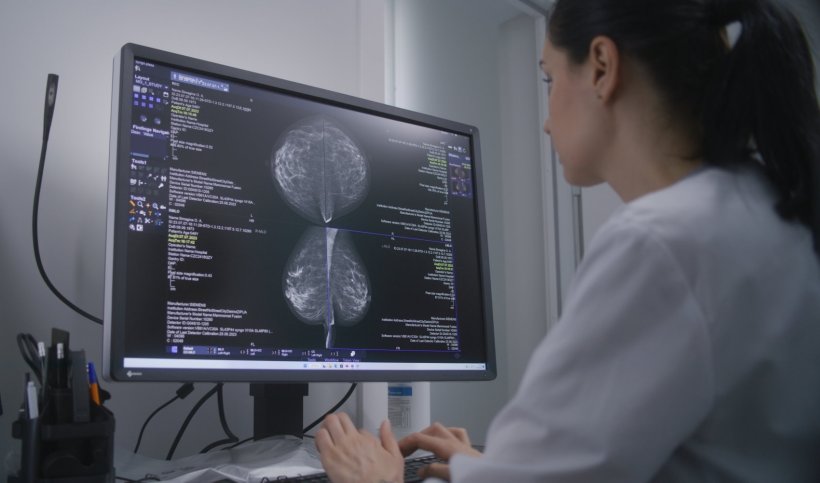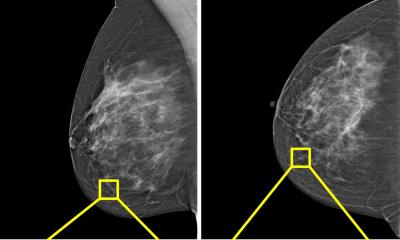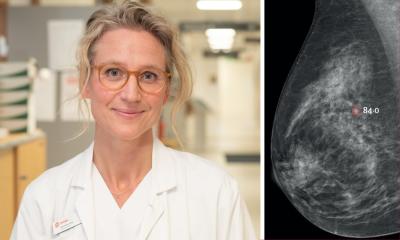
© Framestock – stock.adobe.com
News • Mammogram assessment
AI can replace second radiologist in breast cancer screening, study finds
AI is detecting tumors more often and earlier in the Dutch breast cancer screening program. Those tumors can then be treated at an earlier stage.
This has been demonstrated by researchers led by Radboud university medical center in a study published in The Lancet Digital Health. The use of AI could reduce workload and save millions of euros annually.
Previous research in Sweden had already shown that AI detects breast cancer on mammograms more frequently than radiologists. Moreover, AI can reduce the workload for radiologists. Now, it appears that AI can also replace the second radiologist in the Dutch breast cancer screening program. This even leads to the detection of more tumors—and at an earlier stage—which later turn out to be clinically significant.
We see that radiologists work well with AI, which leads to more tumors being detected without a significant increase in unnecessary follow-up checks for women
Ritse Mann
Researchers, led by breast radiologist Ritse Mann of Radboudumc, analyzed 42,000 breast scans. These mammograms were taken as part of the Dutch screening program in the Utrecht region. Traditionally, two radiologists review these scans, as is standard practice in breast cancer screening. In this study, the researchers also evaluated the scans using AI developed by ScreenPoint Medical. Additionally, they followed the women whose scans were analyzed for nearly four and a half years, with multiple scans available for many of them.
The study showed that one radiologist working with AI detects more tumors than two radiologists alone. Tumors are also identified earlier when AI is involved. 'Sometimes the AI detects a tumor that the radiologists don’t yet recognize as such. We call this a false positive. But often that tumor appears in a later scan after all. Therefore the AI was right earlier', PhD candidate Suzanne van Winkel explains. 'By the time the radiologist raises the alarm, it often concerns larger invasive tumors, which definitely need treatment, as early as possible.'
In Sweden, AI is already being used to analyze screening mammograms. 'They replace the second radiologist with AI. Only if the AI is uncertain does a second radiologist step in', Mann explains. 'We see that radiologists work well with AI, which leads to more tumors being detected without a significant increase in unnecessary follow-up checks for women.'
The current study shows that AI is also good enough in the Dutch setting to replace the second radiologist in screening scan analysis. This could save several million euros per year. Yet AI is not currently being used in the Netherlands. 'In Sweden, screening is organized regionally, while in the Netherlands it's organized nationally. That makes implementing AI more logistically challenging here', says Mann. 'The IT infrastructure in the Netherlands is not yet ready. That requires funding.'
Source: Radboud University Medical Center
14.08.2025





